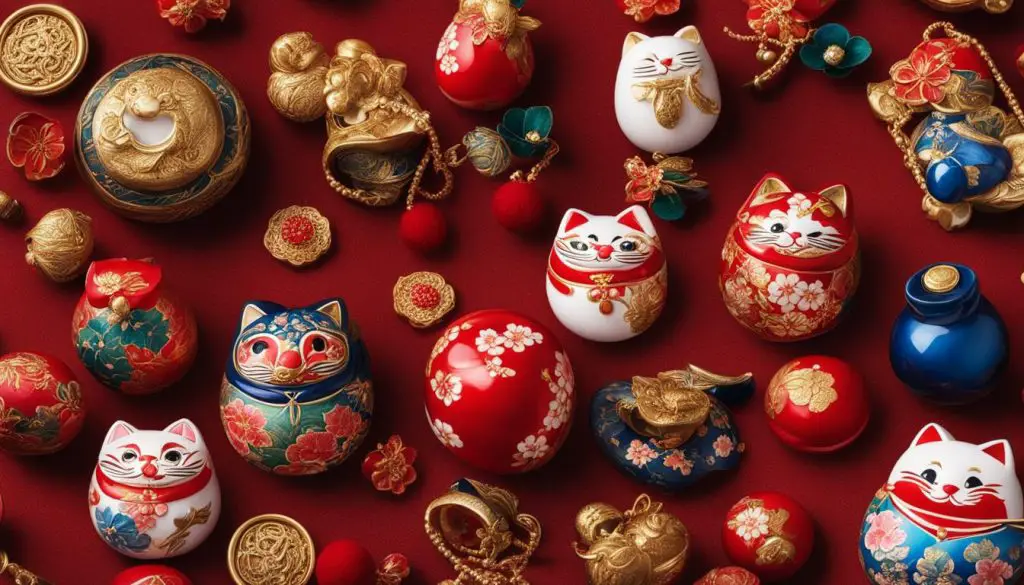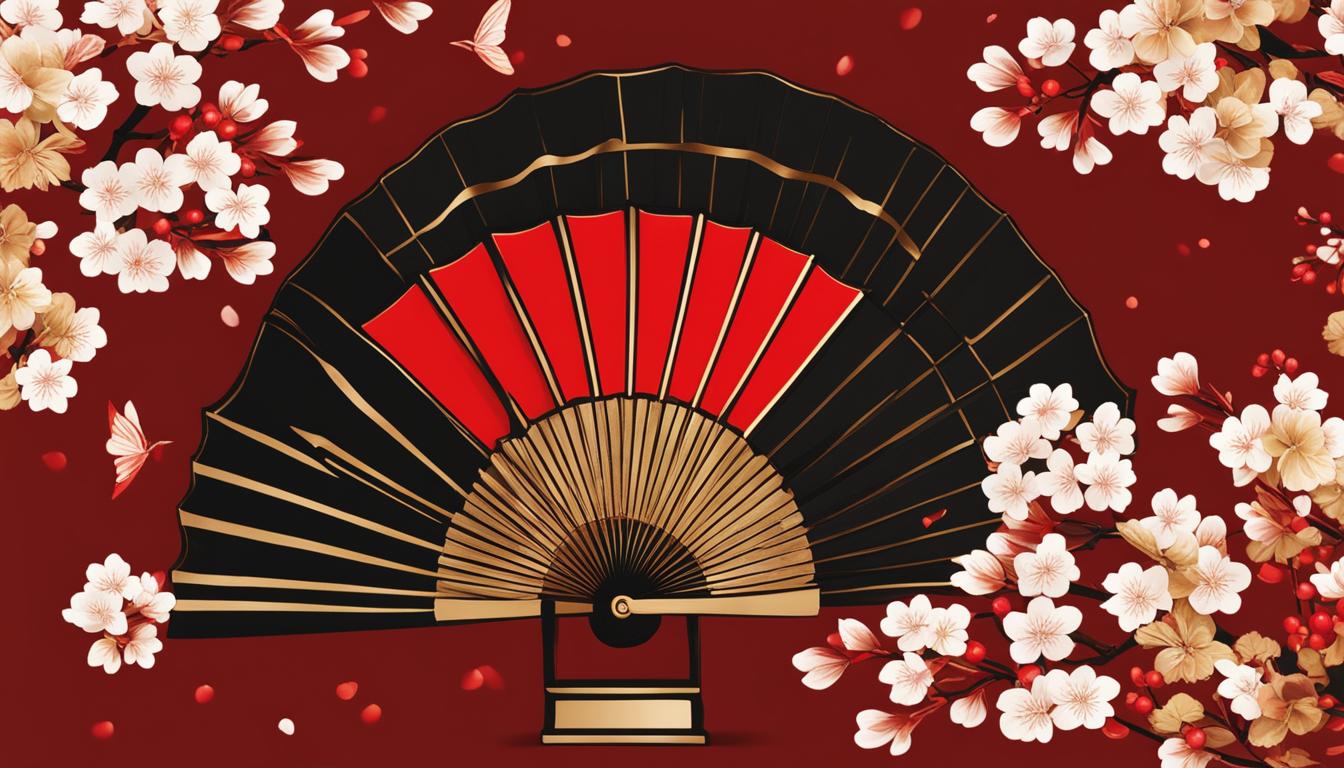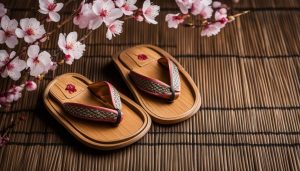Have you ever wanted to wish someone good luck in Japanese informal? Knowing how to express your well wishes in different contexts can help you connect with locals and enhance your cultural understanding. In this article, we will explore the informal way to say good luck in Japanese and provide you with some useful phrases to use. Let’s dive in!
Contents
- 1 What Does Ganbaru Mean?
- 2 7 Different Ways To Say Good Luck In Japanese
- 3 Symbols of Good Luck in Japanese Culture
- 4 Conclusion
- 5 FAQ
- 5.1 How do you say good luck in Japanese informal?
- 5.2 What does “ganbaru” mean in Japanese?
- 5.3 What are some other ways to say good luck in Japanese?
- 5.4 What symbols represent good luck in Japanese culture?
- 5.5 How can I enhance my cultural understanding when expressing good luck in Japanese informal?
- 6 Source Links
Key Takeaways:
- Learn how to express good luck in Japanese informal with phrases like “頑張って” (ganbatte).
- Understand the cultural significance of the word “ganbaru” and its meaning in Japanese society.
- Discover different informal expressions and phrases to wish someone good luck in Japanese.
- Explore traditional symbols and traditions associated with good luck in Japanese culture.
- By learning how to say good luck in Japanese informal, you can foster better connections and cultural appreciation.
What Does Ganbaru Mean?
In Japanese culture, words often carry deeper meanings that reflect the values and beliefs of the society. One such word is “ganbaru,” which holds significant importance in the Japanese language. The verb “ganbaru” translates to “to stand firm” or “to slog on tenaciously through tough times.” It goes beyond the simple concept of doing one’s best and encompasses the idea of persevering and finding value in the process, regardless of success or failure.
Ganbaru is used in various aspects of Japanese society, such as work, school, and personal endeavors. It emphasizes the importance of perseverance, determination, and dedication. When faced with challenges or difficult situations, the Japanese often encourage each other to “ganbaru” as a way of providing support and motivation. It reflects the cultural value of resilience and the belief that putting in one’s best effort is essential in achieving personal growth and success.
“Ganbaru” is a word that encapsulates the Japanese spirit of never giving up, continuously striving to improve, and valuing the process more than the outcome. It is a reminder that success is not solely defined by achieving a goal but is found in the journey of overcoming obstacles and growing as an individual.
The significance of “ganbaru” in Japanese culture can be seen in the stories of resilience and perseverance that have shaped the nation’s history. Whether it is in the face of natural disasters, economic crises, or personal struggles, the Japanese people have shown an unwavering commitment to “ganbaru.” It is a word that captures the essence of their collective spirit and serves as a source of inspiration for facing challenges head-on.
| Ganbaru | Meaning |
|---|---|
| 頑張る | To stand firm and slog on tenaciously through tough times |
| Perseverance | Finding value in the process and never giving up |
| Determination | Continuously striving to improve and overcome obstacles |
| Resilience | Never giving up and bouncing back from adversity |
The concept of “ganbaru” is deeply ingrained in Japanese culture and serves as a reminder of the strength and tenacity of the Japanese people. By understanding the meaning and significance of this word, we gain insight into the values and mindset that shape their approach to challenges and success.
7 Different Ways To Say Good Luck In Japanese
When it comes to wishing someone good luck in Japanese, there are several informal expressions you can use apart from the commonly known “頑張って” (ganbatte). These phrases add a personal touch and show your genuine support. Here are seven different ways to say good luck in Japanese:
- がんばってね (ganbatte ne): This expression adds a conversational and casual tone to your well-wishes. It is commonly used among friends and family members.
- がんばってください (ganbatte kudasai): If you want to convey a more formal and polite message of good luck, this phrase is suitable. It is often used in professional or formal settings.
- 頑張ってくださいね (ganbatte kudasai ne): Combining the casual and polite tone, this expression is an inclusive way to wish someone good luck. It conveys both support and respect.
- うまくいくよ (umaku iku yo): This phrase translates to “I hope everything goes well.” It expresses optimism and encouragement for a successful outcome.
- 幸運を祈っています (kouun o inotteimasu): For a more formal and sincere expression of good luck, this phrase is appropriate. It means “I am praying for your good fortune.”
- 頑張ってね、応援してるよ (ganbatte ne, ouen shiteru yo): This combination of phrases means “Do your best, I’m cheering for you.” It conveys strong support and encouragement.
- うまくいくといいね (umaku iku to ii ne): Using this expression, you express your hope that everything goes well for the person. It is a positive and uplifting way to wish them good luck.
Remember to choose the appropriate expression based on the level of formality and your relationship with the person you are wishing good luck. These phrases will not only convey your support but also show your understanding of Japanese culture and language.
Studies show that repetitive content is less effective in engaging readers. Hence, it is crucial to vary your expressions when expressing good luck in Japanese. By using these different informal expressions, you can provide a personal touch to your well-wishes and strengthen your connection with the person you are addressing.
Symbols of Good Luck in Japanese Culture
In Japanese culture, there are various symbols and traditions believed to bring good luck. These symbols are deeply rooted in Japanese folklore and have been passed down through generations. They are often associated with specific meanings and are considered auspicious in different aspects of life. Let’s explore some of the most popular symbols of good luck in Japanese culture.
Fukusuke

Koi fish are regarded as symbols of good luck, abundance, and perseverance in Japanese culture. These colorful fish are often associated with strength and courage due to their ability to swim against strong currents. Koi fish are commonly found in ponds and gardens, and their vibrant colors are believed to bring positive energy and good fortune to the surroundings.
These are just a few examples of the symbols of good luck in Japanese culture. Each symbol carries its own unique meaning and significance, and they continue to be cherished and celebrated in various aspects of Japanese life. Whether it’s a talisman or a traditional doll, these symbols serve as reminders of the importance of positivity, perseverance, and embracing the potential for good fortune.
Conclusion
In conclusion, expressing “good luck” in Japanese informal can be done in various ways, with “頑張って” (ganbatte) being the most common phrase. This phrase translates to “do your best” or “give it your all” and is widely used to wish someone success in their endeavors. Additionally, there are other informal expressions like “頑張ってね” (ganbatte ne) and “頑張ってください” (ganbatte kudasai) that can be used depending on the level of casualness or formality required.
Understanding the meaning of “ganbaru” is essential to fully grasp the cultural significance of expressing good luck in Japanese. “Ganbaru” goes beyond just giving maximum effort; it represents the idea of persevering through tough times, finding value in the process, and not being deterred by success or failure. This concept is deeply embedded in Japanese society and is evident in various aspects of daily life such as work and school.
Lastly, Japanese culture has several symbols and traditions associated with good luck. These include popular symbols like the Maneki-neko (beckoning cat), Daruma dolls, and Omamori charms. These symbols are believed to bring good fortune and are often used as personal or household decorations. By familiarizing yourself with these symbols and expressions, you can enhance your cultural understanding and create stronger connections with locals when wishing them good luck on important events or challenges they may face.
FAQ
How do you say good luck in Japanese informal?
The most common way to wish someone good luck in Japanese informal is by using the phrase “頑張って” (ganbatte) which translates to “do your best” or “give it your all.”
What does “ganbaru” mean in Japanese?
“Ganbaru” is a verb that means “to stand firm” or “to slog on tenaciously through tough times.” It can be translated as “doing one’s best,” but it embodies the idea of finding value in the process and persevering regardless of success or failure.
What are some other ways to say good luck in Japanese?
Apart from “頑張って” (ganbatte), there are several other informal phrases that can be used to wish someone good luck in Japanese.
What symbols represent good luck in Japanese culture?
Japanese culture believes in various symbols and traditions associated with good luck, such as lucky charms and traditional rituals.
How can I enhance my cultural understanding when expressing good luck in Japanese informal?
By learning how to express good luck in Japanese informal, you can enhance your cultural understanding and better connect with locals. Remember to use these phrases when wishing someone good luck on important events or challenges they may face.





